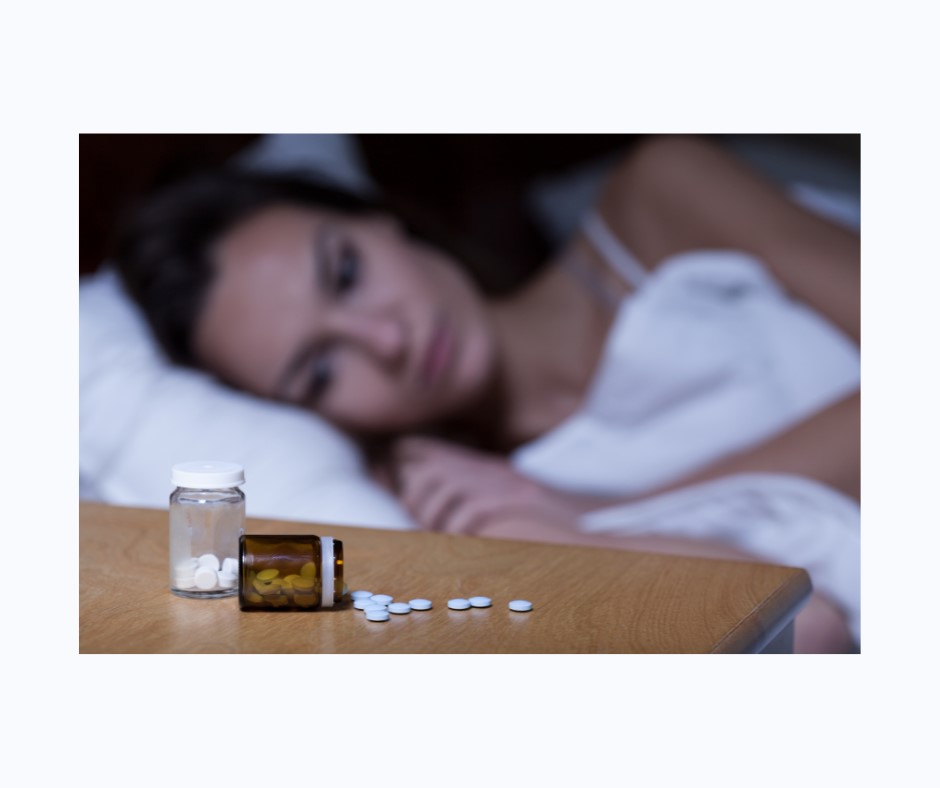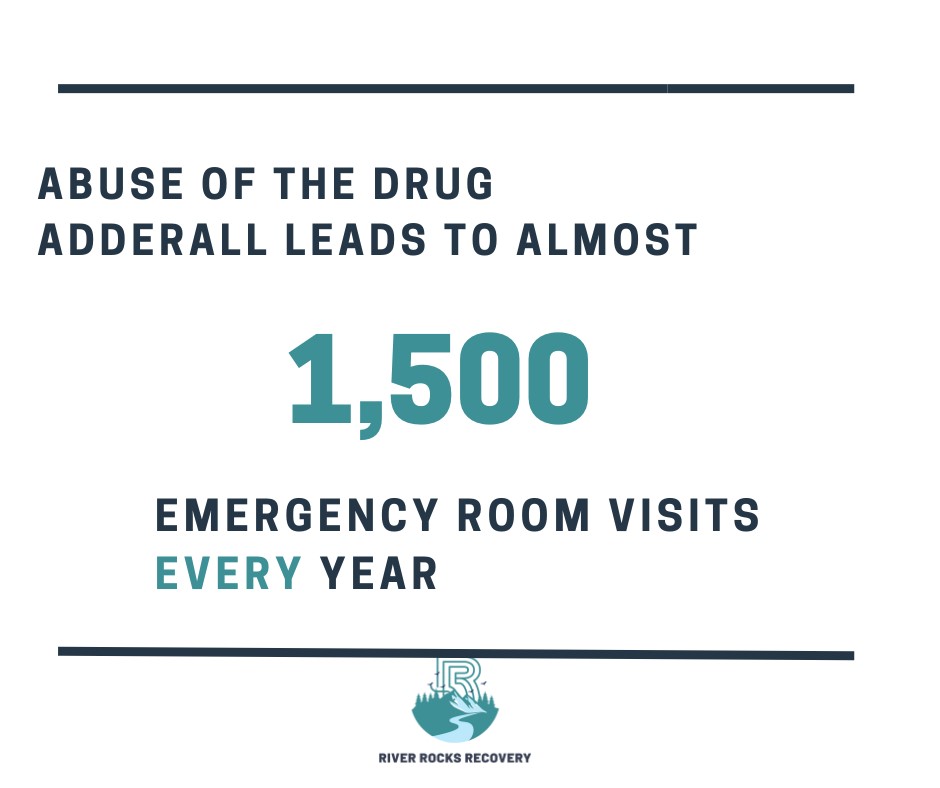You long for the focus and energy Adderall once provided. The crash that follows each dose grows harder to endure. Your dependence has spiraled out of control, and you want your life back. River Rocks Recovery understands how Adderall addiction can overtake your world. Their comprehensive treatment programs, including partial hospitalization (PHP), intensive outpatient (IOP), and general outpatient levels of care, deliver the tools and support for lasting sobriety. With individualized therapy, group counseling, medical oversight, and aftercare planning, River Rocks helps you break free from stimulant addiction so you can reclaim your health and purpose. Take the first step and contact us today at (888) 905-6281. The path to recovery starts here.
Adderall Addiction Treatment at River Rocks Recovery
At River Rocks Recovery, we provide comprehensive treatment for Adderall addiction. With mental health therapy and our evidence-based programs, we address the physical, psychological, and behavioral aspects of substance use disorders.
What Is Adderall?
Adderall is a prescription stimulant medication containing amphetamine and dextroamphetamine. It works by increasing levels of certain brain chemicals like dopamine and norepinephrine, which play a key role in regulating attention, impulsivity, and hyperactivity.
Approved Uses
Adderall is FDA-approved to treat attention deficit hyperactivity disorder (ADHD) and narcolepsy. For ADHD, it aims to improve focus, concentration, and impulse control. For narcolepsy, it helps promote wakefulness.
Abuse Potential
While helpful when taken as prescribed, Adderall has a high potential for misuse, dependence, and addiction. Taking it without a prescription or in excessive doses can produce euphoric effects, leading some to abuse it as a “study drug” or to get high. Long-term misuse can have serious psychological and physiological consequences.
How Does Adderall Affect the Body?
Adderall is a stimulant medication that increases levels of dopamine and norepinephrine in the brain. These neurotransmitters affect focus, energy, and motivation.
Short-Term Effects
- Increased heart rate and blood pressure
- Decreased appetite and sleep disruptions
- Feelings of euphoria or excessive energy
Long-Term Abuse
Chronic misuse can lead to addiction, psychosis, cardiac issues, and other health problems. Treatment is crucial to overcome dependence and restore balanced brain chemistry.
Is Adderall Addictive?
Yes, Adderall (amphetamine and dextroamphetamine) is a highly addictive stimulant medication. While prescribed for ADHD, its potential for abuse and addiction is well-documented.
Addictive Properties
Adderall increases levels of dopamine and norepinephrine in the brain. This produces a euphoric “high” that can quickly lead to psychological dependence. Tolerance builds rapidly, fueling a cycle of increasing dosages.
Signs of Addiction
- Inability to cut down or control use
- Using despite negative consequences
- Preoccupation with obtaining and using Adderall
- Withdrawal symptoms when stopping
Individuals of all ages abuse prescription drugs. Abuse of the drug Adderall leads to almost 1,500 emergency room visits every year, and serious side effects can include insomnia and stroke. Seeking professional addiction therapy and treatment is crucial for overcoming Adderall dependency. River Rocks Recovery offers comprehensive inpatient, partial hospitalization, intensive outpatient and outpatient programs to address addiction’s root causes.
Adderall Addiction
Signs & Symptoms
Adderall addiction can manifest in physical and behavioral changes. Look for dilated pupils, weight loss, irregular sleep patterns, mood swings, and social isolation.
Treatment Approach
At River Rocks Recovery, our comprehensive treatment covers counseling, therapy and aftercare support. The partial hospitalization program (PHP) provides intensive daily treatment, while our intensive outpatient program (IOP) offers more flexibility. We also have an outpatient program tailored to each individual’s needs.
Ongoing Support
Recovering from Adderall addiction requires commitment. Our team provides compassionate care, helping patients develop healthy coping strategies and life skills for lasting sobriety. Family counseling further strengthens the support system.
Adderall Addiction Treatment Programs at River Rocks Recovery
At River Rocks Recovery, we understand the challenges of Adderall addiction and provide comprehensive treatment programs tailored to your needs. Our evidence-based approach combines medication-assisted treatment with therapy for a holistic healing experience.
Partial Hospitalization Program (PHP)
For those requiring intensive care, our partial hospitalization program (PHP) offers a structured environment with daily counseling, group therapy, and 24/7 medical monitoring. This immersive program equips you with coping strategies and relapse prevention skills.
Intensive Outpatient Program (IOP)
Our intensive outpatient program (IOP) strikes a balance between treatment and independence. With regular therapy sessions and support group meetings, you’ll develop a strong recovery foundation while maintaining your daily routine.
Outpatient Program
For those further along in recovery, our outpatient program provides flexibility with weekly counseling and alumni support groups. This step-down approach reinforces lasting sobriety through personalized care.
Treatment Process at River Rocks Recovery
At River Rocks Recovery, your Adderall addiction treatment begins with a comprehensive assessment. Our team evaluates your physical and mental health to design a personalized plan. Mental health therapy tools used in combination with the PHP, IOP, or outpatient programs are most effective for your path to recovery.
Evidence-Based Therapies
Our treatment approach combines evidence-based therapies proven effective in treating substance use disorders. We incorporate cognitive-behavioral therapy (CBT), dialectical behavior therapy (DBT), and motivational interviewing techniques to help you develop healthy coping mechanisms, improve emotional regulation, and build the motivation necessary for sustained recovery.
Continuing Care
Our alumni program provides ongoing peer support and resources after completing treatment. This helps cement the foundation for lifelong recovery from Adderall addiction.
Conclusion
In conclusion, the comprehensive treatment programs at River Rocks Recovery provide tailored care and support for those struggling with Adderall addiction. Their partial hospitalization program, intensive outpatient program, and general outpatient options allow you to find the right level of care based on your needs. With compassionate medical and clinical staff, evidence-based therapies, and a commitment to your recovery, River Rocks gives you hope. Take the first step and contact us today at (888) 905-6281 today to learn more about the personalized treatment plans available. There are brighter days ahead on your journey of healing from Adderall addiction.
Frequently Asked Questions About Adderall Addiction Treatment
Q. What is Adderall Addiction?
Adderall is a prescription stimulant medication used to treat attention deficit hyperactivity disorder (ADHD) and narcolepsy. However, it can be highly addictive when misused or taken without a prescription. Adderall addiction is a serious substance use disorder characterized by compulsive drug-seeking and use despite negative consequences.
Q. What Treatment Options are Available?
River Rocks Recovery offers comprehensive, evidence-based treatment for Adderall addiction through various programs tailored to each client’s needs. Their partial hospitalization program (PHP) provides intensive treatment while allowing clients to live at home. The intensive outpatient program (IOP) offers a step-down level of care with flexible scheduling. Outpatient treatment provides counseling and support for those further along in recovery.
Q. How Long Does Treatment Take?
Treatment duration varies based on the severity of addiction and individual progress. Most clients begin with a higher level of care, like PHP or IOP, then step down as they build a strong recovery foundation. A typical treatment episode may last several months, but long-term support is often necessary to maintain sobriety.





























